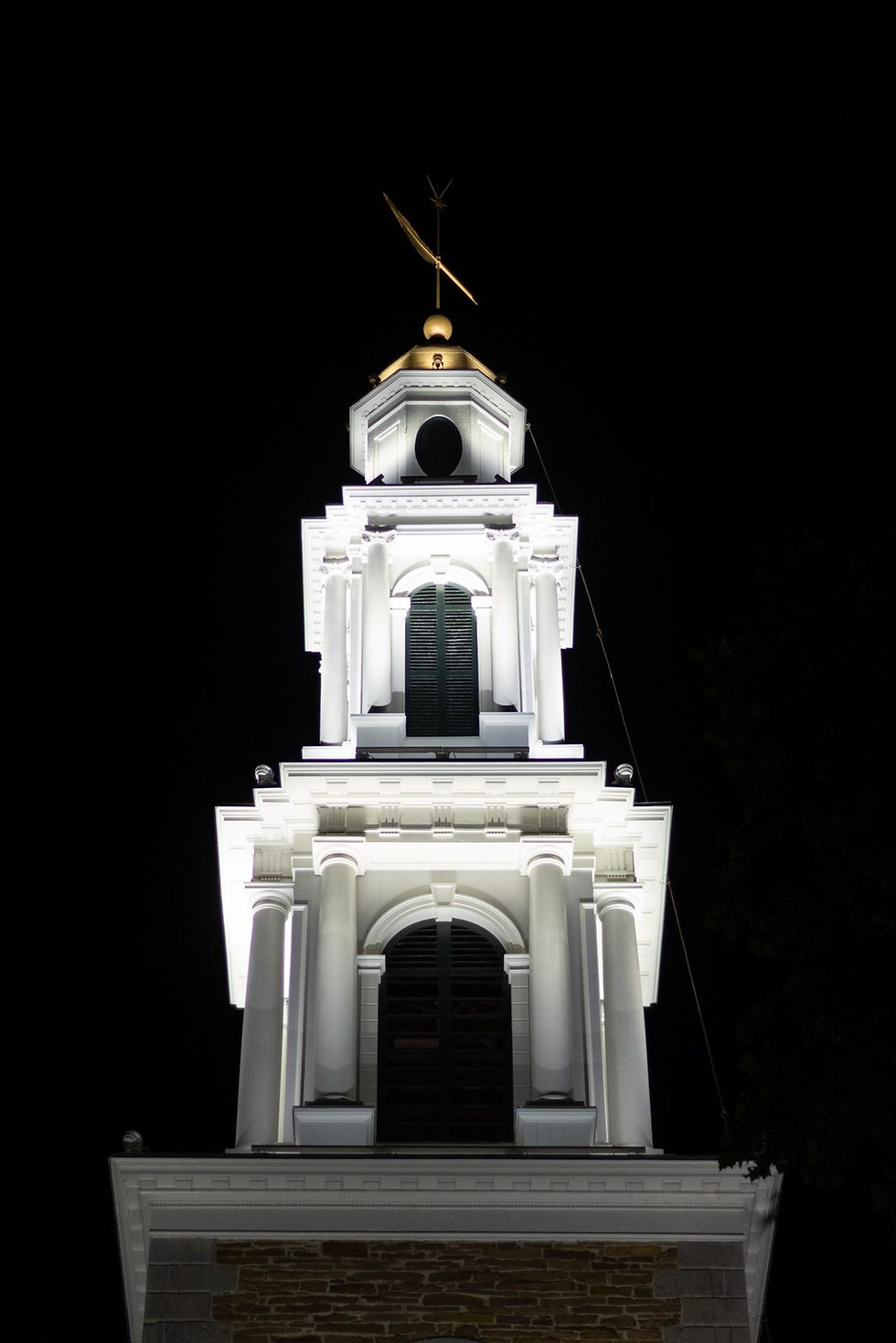Hamilton’s next president: sociologist and creative Steven Tepper
- Eric Santomauro-Stenzel
- Feb 8, 2024
- 4 min read

BUTTRICK HALL, Office of the President – Yesterday morning, Presidential Search Committee Co-Chairs and trustees Bob Delaney ’79 and Linda Johnson ’80 announced Dr. Steven Tepper as Hamilton College’s 21st president. Tepper will move on from ten years as Dean and Director of the Herberger Institute for Design and the Arts at Arizona State University (ASU).
A cultural sociologist and creative who has also held positions at Vanderbilt University, Princeton University, and the University of North Carolina at Chapel Hill, President-Elect Tepper is a leader of the “creative campus” movement. The movement aims to center creativity in all areas of campus life. As outlined in his 2004 Chronicle of Higher Education cover story, he believes major sources of creativity include collaboration, cross-cultural exchange, interdisciplinary exchange, time and resources, and “an environment that tolerates and even encourages failure.”
“Hamilton’s rich history, emphasis on communication, open curriculum, and dedication to fostering a diverse, inclusive, and creative campus are values that resonate with me deeply,” Tepper said. “I look forward to working with the talented students, faculty, alumni, trustees, and staff on the next phase of Hamilton’s evolution – one that elevates Hamilton as the most creative and connected liberal arts campus in the world.”
At the ASU Herberger Institute, Tepper helped launch the Sidney Poitier New American Film School, built partnerships with public and private organizations like the Smithsonian and City of Mesa, raised over $80 million, and managed an executive team of 16. The Herberger Institute has approximately 8,300 undergraduate students.
After initial controversies related to the Presidential Search Committee selection process and moves away from presidential search precedent, Trustees sought to correct course and pursued a more open approach. In a heartfelt community listening session in September, community members advocated for a president who would both be a leader and a listener, someone who would lean into the ethos of Hamilton’s open curriculum by embracing experimentation and crafting a clear, collaborative, decidedly interdisciplinary vision for the institution. Community members have repeatedly called for redoubled, and more sensitive, efforts to support marginalized faculty, students, and staff.
Associate Professor of History Celeste Day Moore, a faculty representative on the Presidential Search Committee, told the Monitor, “One of my biggest priorities in the search process was to find a president who knew how to listen, which is a skill I have been thinking about a lot this past year. I co-teach a course with Associate Professor of Literature and Creative Writing Pavitra Sundar on sound and listening, and what students know from this course is how difficult real listening is, as it requires us to try to move beyond our established interpretative frameworks and categories to really engage another person, and be open to the new paradigm presented by their experience and background.”
“What impressed me most about Steven was his ability to listen, to be fully engaged in what people were saying to him, and to respond to them with care and precision,” Day Moore shared. “I believe this is enormously important for our community at the moment. Considering this alongside his commitments to the arts and to shared governance, as well as his track record in hiring and retaining a diverse faculty, I am really excited about what Steven brings to Hamilton.”
In its web announcement, Hamilton credited Tepper with “more than tripling the number of Hispanic, Black, and Indigenous full-time faculty; creating dozens of fellowships and visiting positions for artists and designers from under-represented communities; and facilitating the launch of new courses, tracks, and degrees that embrace more diverse cultural expression” at the ASU Herberger Institute. Diversity, Equity, and Inclusion (DEI) has been a major conversation at Hamilton in recent years, especially as the school has struggled to retain and build a welcoming environment for many faculty of color.
Assistant Professor of Biology Rhea Datta, another faculty representative on the Committee, told the Monitor she’s excited to welcome President-Elect Tepper to campus. “I believe that he will be someone who listens to students, staff, faculty, and other members of the community. I think he will be visible and present on campus, which is going to be crucial for building community. And, lastly, I am hopeful he will amplify and uplift all the creative efforts that are going on on this campus - including the research that is happening across all disciplines.”
Tepper’s selection represents a notable shift in Hamilton’s presidential history. Incumbent President David Wippman (2016 - 2024) was a lawyer by trade, and his predecessor, President Joan Hinde Stewart (2003 - 2016), earned a PhD in French. Presidents Eugene Tobin (1993 - 2003) and Harry Payne (1988 - 1993) were historians. President J. Martin Carovano (1974 - 1988), best known for leading the Kirkland College takeover and defending Hamilton’s investments in Apartheid South Africa, was an economist.
As a sociologist – particularly one with a creative focus who has studied social change and comes from a design and arts school – President-Elect Tepper comes from a more contemporaneously socially-oriented disciplinary tradition that challenges Hamilton’s relatively staid governance history. Unlike many of Hamilton’s presidents, Tepper will arrive with a pedagogical vision of what higher education should be that strikes a similar chord to that of Kirkland, rather than just Hamilton.
Discussing work to increase BIPOC representation at ASU and build national cultural policy centers with a focus on creativity at Princeton and Vanderbilt, Tepper said, “I can’t wait to bring all of this to Hamilton, and work alongside all of you.”
Tepper will take office on July 1st, 2024.



Comments